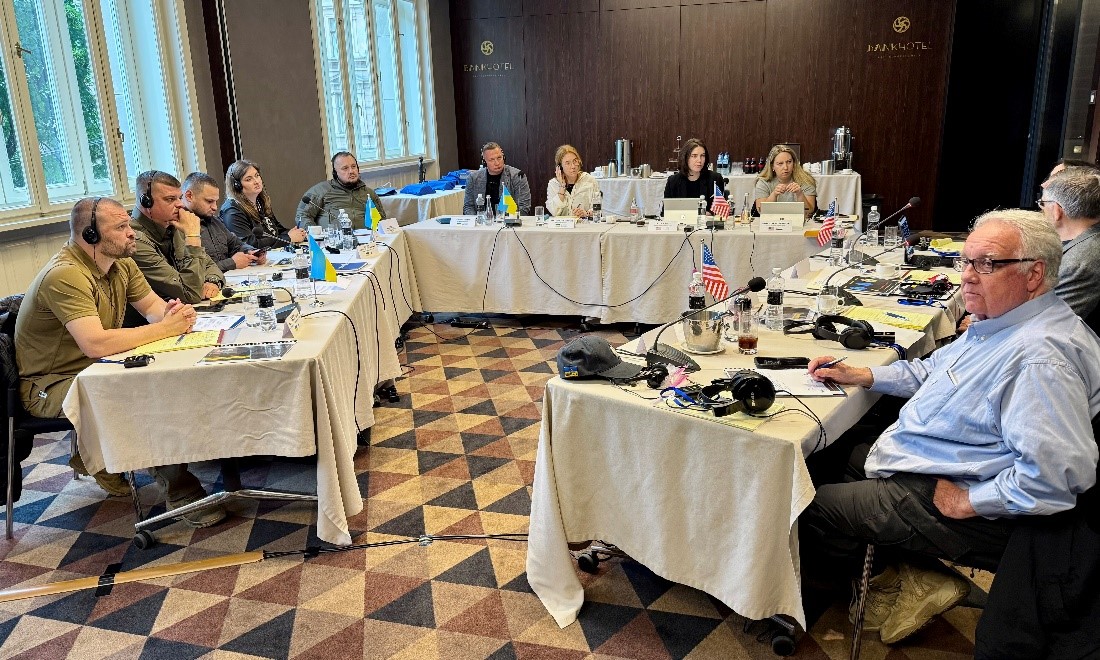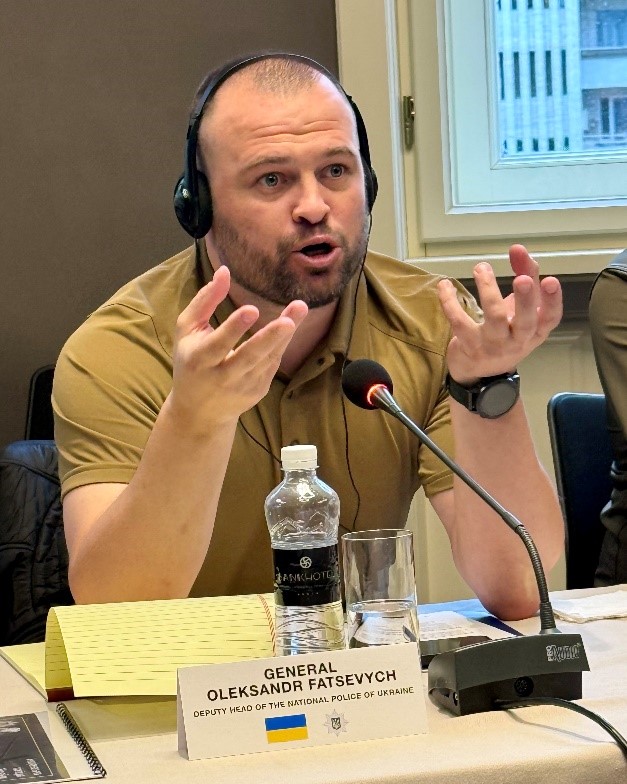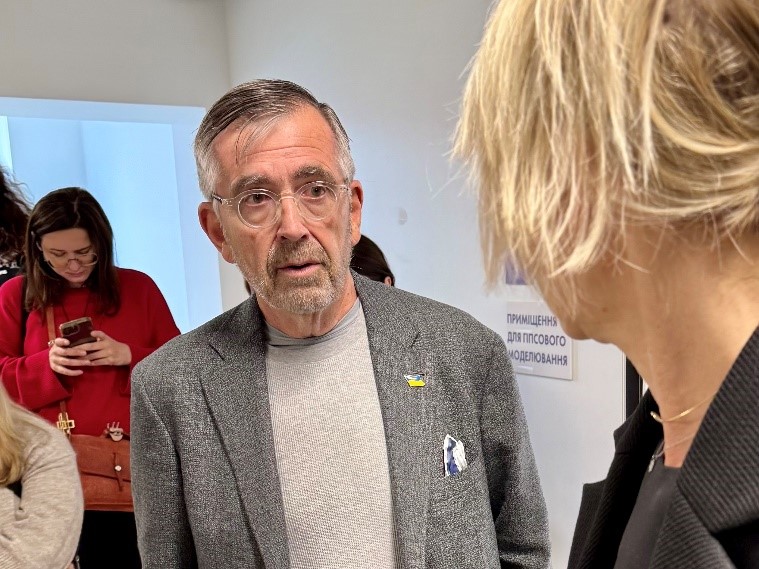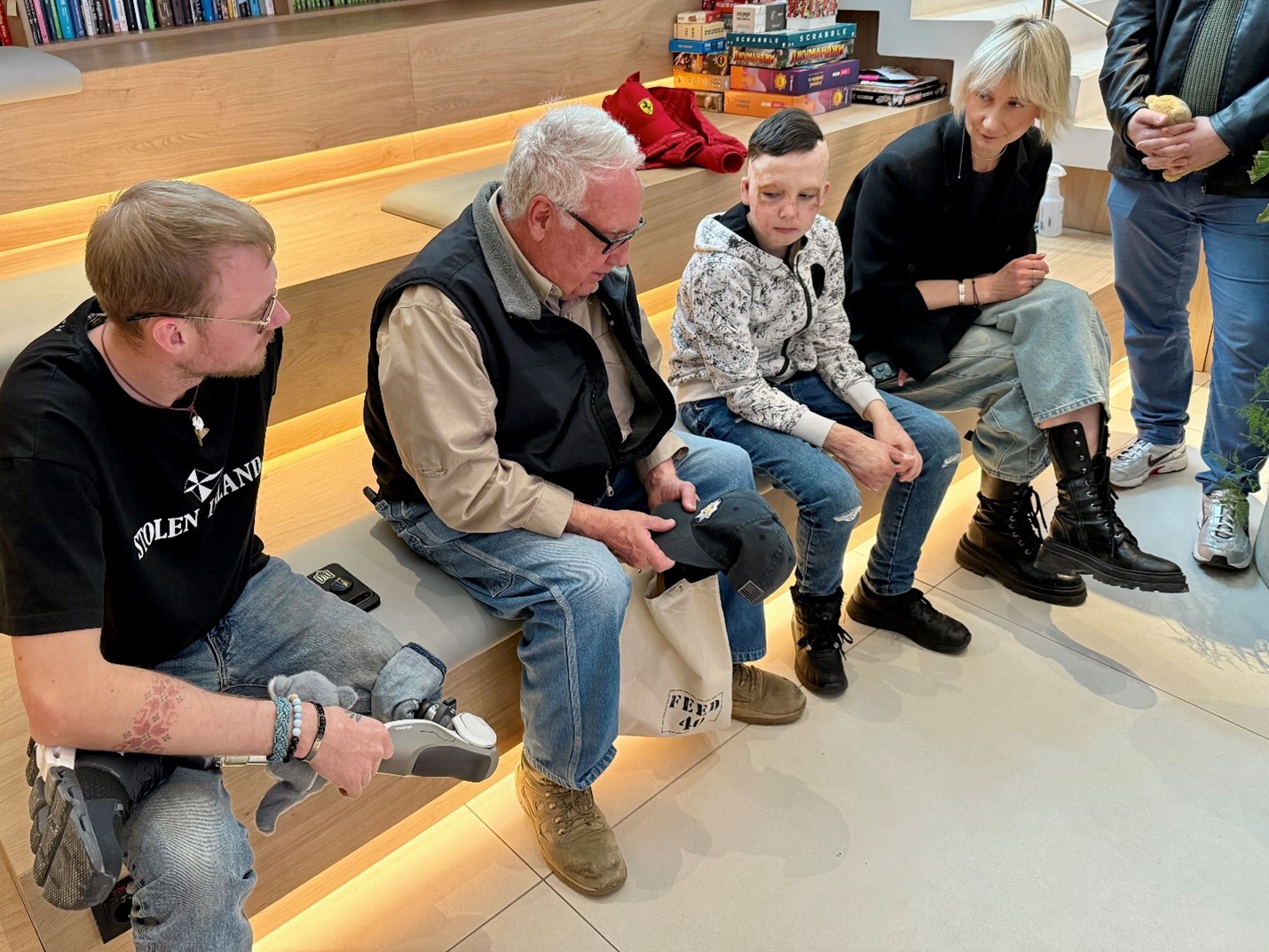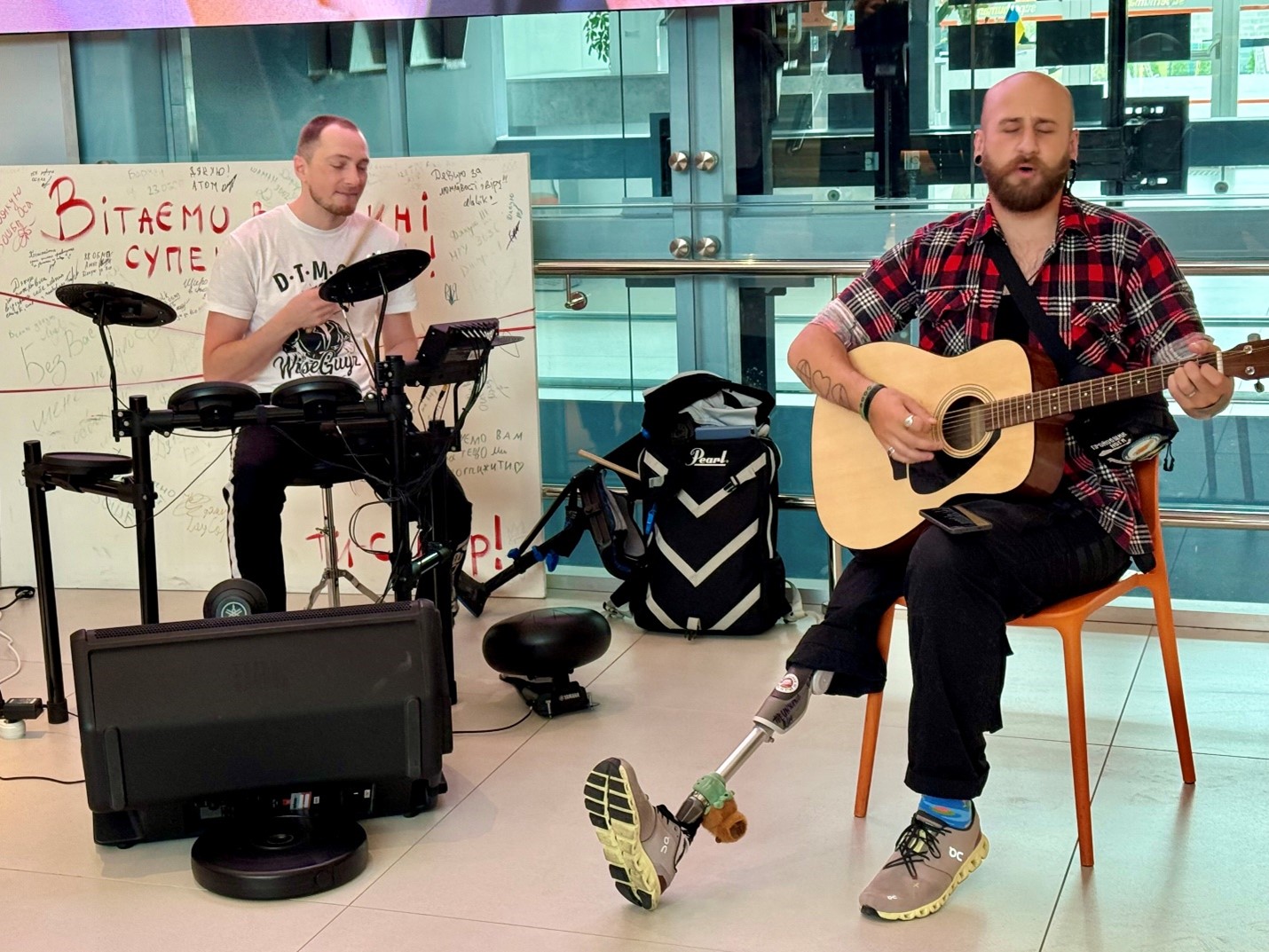|
June 7, 2025 Witnessing incredible resilience and fortitude on my recent visit to Ukraine
PERF members, I hadn’t planned to spend my Memorial Day weekend in Ukraine. But when the opportunity came up to return to the country to check in on efforts to support police officers and others, I knew I had to go. Readers of this column may recall I have taken two previous trips to Ukraine since Russia’s invasion more than three years ago. During the first trip in January 2023, I met with General Ihor Klymenko, then head of the National Police of Ukraine, to discuss the challenges facing the police. During that trip, PERF presented 1,000 sets of Under Armour boots and ColdGear tops and bottoms to officers in the Kyiv Regional Police. A follow-up visit in March 2023 focused on the police role in investigating war crimes. The latest trip was organized by Howard Buffett, a philanthropist and the former sheriff of Macon County, Illinois. Buffett has made more than 20 trips to Ukraine, and he has taken a special interest in the police there. With his foundation’s support, Ukraine has rebuilt police stations damaged in the conflict, procured Rapid DNA machines to help identify casualties of the war, and provided other critical assistance to officers serving in a war zone. The foundation has also provided considerable humanitarian support throughout the country. Police officers in Ukraine are experiencing the trauma of war from multiple perspectives. Many have been called up to serve in the military. For those who make it back, the trauma experienced on the front lines will undoubtedly affect them when they return to policing. Those officers not serving in the military still experience trauma in their everyday role as first responders, trauma that goes beyond what first responders experience outside of war zones. They must rush to locations hit by enemy missiles, evacuate citizens whose buildings have been hit, and help identify those who have been killed. After a missile strike, the Russian military is known to fire additional missiles at the same location, targeting first responders as they rush to help the wounded. Buffett thought it made sense to assemble a working group to sit down with Ukrainian leaders to hear about the psychological trauma and physical injuries, including traumatic brain injuries (TBI), that police officers and others are experiencing in that war-torn country.
Joining us were retired U.S. Army General Peter Chiarelli—who served two tours in Iraq and is an expert on post-traumatic stress, TBIs, and suicide prevention—and Dr. Jo Sornborger, a clinical psychologist and clinical director of UCLA’s Operation Mend program, which supports wounded warriors. We met with General Oleksandr Fatsevych, deputy head of the National Police of Ukraine, and other officials from the agency. Our goal was to use the U.S. experts’ experience from recent conflicts in Iraq and Afghanistan to help develop a pilot program that addresses post-traumatic stress and TBIs among soldiers and first responders in Ukraine. General Fatsevych said his officers constantly hear news of colleagues killed or injured in combat. Life on the front line is very dangerous, and for those who survive the fighting, the stress will likely linger for years. The general said there needs to be research on the nature and extent of this trauma and its long-term effects, but he also emphasized that trauma is a huge problem the country must address right now. He suspects the suicide rate among officers is increasing and that officers’ post-traumatic stress will only grow over time. General Chiarelli described some lessons learned about post-traumatic stress during the Iraq War. The prevailing thinking in the 2000s was similar to what he said a high school coach once told him: “Just shake it off and go back in the game.” Of course, this is the exact opposite of what people with post-traumatic stress need. Dr. Sornborger, who has worked with General Chiarelli, said it is important to recognize and understand TBI and its long-term effects, which can include severe headaches, sleeplessness, and nightmares. She said it is critical for those experiencing TBI to get help in learning how to cope with these symptoms—what she called “pain management 101.” General Chiarelli added that, in his experience, the most vulnerable person is someone who doesn’t realize they have a problem, self-medicates using alcohol or drugs—and has access to a firearm. While U.S. police officers are not operating in a war zone like their counterparts in Ukraine, they, too, witness levels of violence and trauma that can produce extreme stress and, in some cases, thoughts of suicide. American police leaders need to heed General Chiarelli’s warning. PERF’s 2019 report on police suicide identified exposure to trauma, alcohol, and availability of firearms as key risk factors, and our recent 2025 report on treatment centers for police officers emphasized the importance of addressing both substance abuse and trauma. Given the level of violence and injury in Ukraine, post-traumatic stress and TBIs are significant problems, and they will likely only worsen as the war continues. That is why the pilot program envisioned by our working group is so crucial. Superhumans But as sobering as the situation is in Ukraine, we also witnessed remarkable resilience, fortitude, and cause for optimism during our brief visit. On our second day, we visited Superhumans, a state-of-the-art clinic offering prosthetics, reconstructive surgery, rehabilitation, and psychological services for Ukrainian soldiers and citizens injured in the war. Patients who were previously turned away from other facilities because of the complexity of their cases, which often involve multiple amputations, can now receive care at Superhumans. Buffett has been a major funder of the nonprofit clinic, and he is well known to many patients and staff there.
The nature of the fighting in Ukraine has resulted in a jaw-dropping number of injuries caused by mine blast explosives. According to Ukrainian officials, about 30 percent of the wounded have lost upper limbs, leaving approximately 80,000 patients in need of at least 150,000 prosthetic limbs in total. And with roughly 30 percent of Ukraine covered with land mines, these already staggering casualty figures will only grow. So the demands on facilities such as Superhumans are enormous. 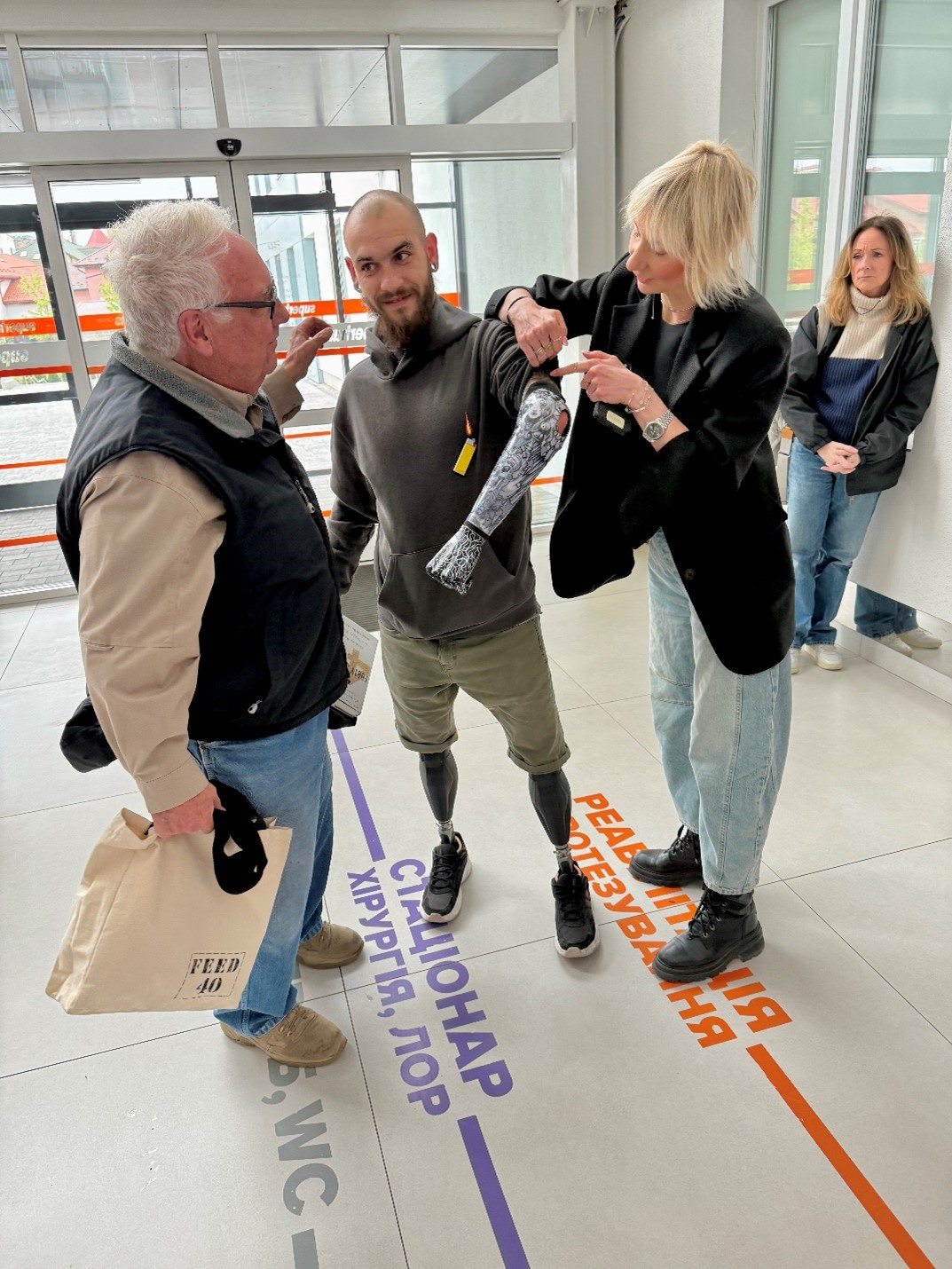
I really didn’t know what to expect upon entering the clinic, but seeing the facility first-hand—especially the dedication of the staff and the resilience of the patients—was nothing short of awe-inspiring. At Superhumans, they not only address the immediate needs of people who have been severely injured but also consider how these individuals will be treated after the war ends. And they’ve created an incredibly welcoming environment—to the point that I only got to know many of the staff and patients by their first names. Our guide, Olga, asked a poignant question: “How should we think about the future, as a country of victims or a country of superhumans?” There was no doubt where Olga and the entire team at Superhumans came down on that question: Prosthetics are nothing to be feared; they are simply a new reality that should be showcased and even made fashionable. They are adamant about breaking down any stigma associated with being disabled. Svitlana, a clinical psychologist at the clinic, said there are four things Superhumans strives to achieve: (1) making sure patients are safe, (2) helping them regain the feeling of being capable and self-sufficient, (3) connecting them to others, and (4) allowing them to regain control of their lives. Should they fall, patients are encouraged not to say, “I fell,” but instead, “I learned how to stand up!”
At the clinic, I also had the chance to talk with Steve, who had come to Ukraine from the United Kingdom to volunteer as a driver of a humanitarian van. The van’s sole purpose was to evacuate citizens who suddenly came under attack. Steve was driving a white vehicle, clearly marked with the lettering of the rescue organization he worked for, when it was hit by a missile fired from a drone. Steve is now a double amputee, having lost an arm and a leg. And yet, his attitude could not have been more positive. 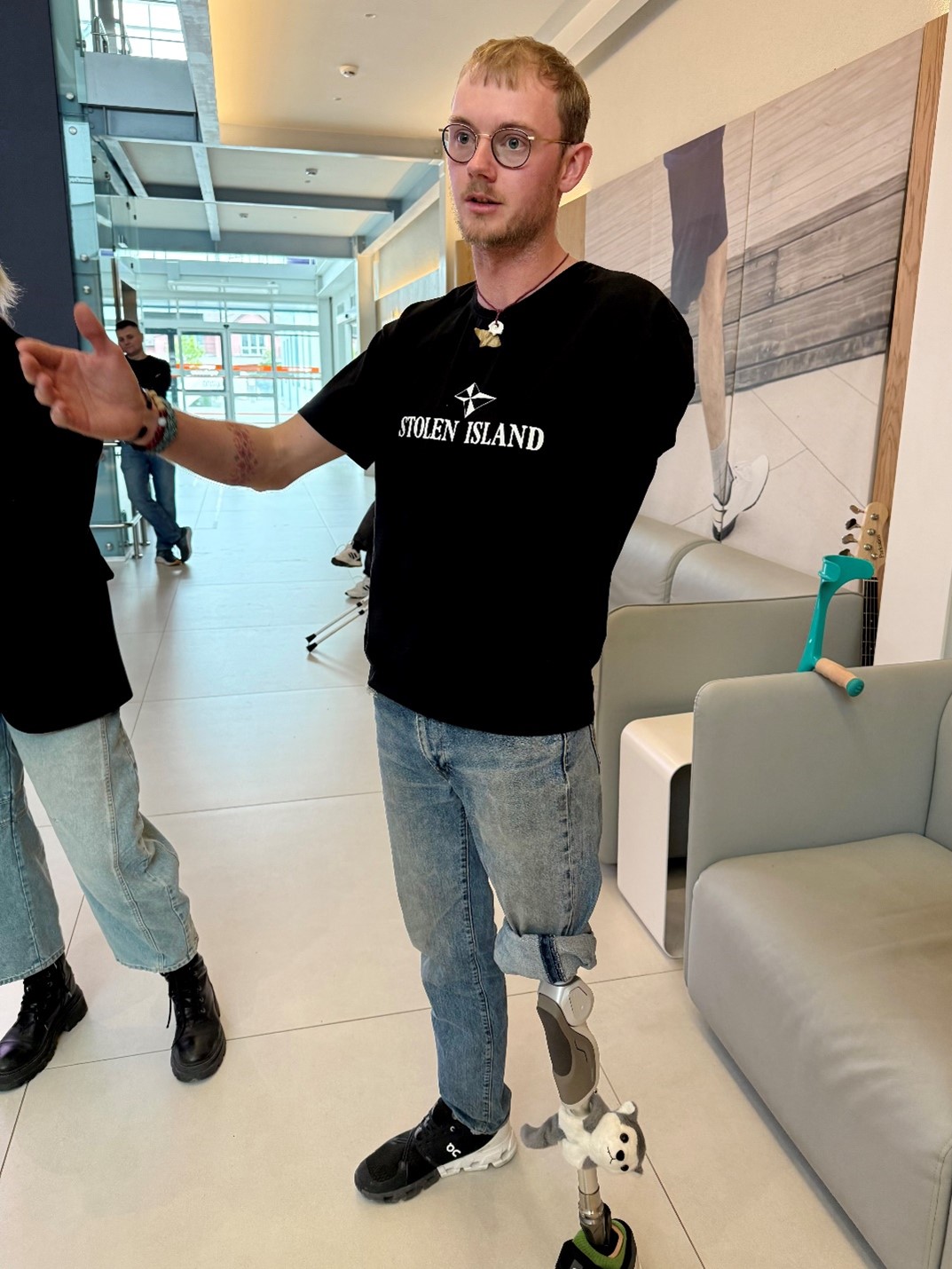
The holistic approach practiced by Superhumans has done wonders for Steve and so many others. Even with their broad experience working with wounded warriors, General Chiarelli and Dr. Sornborger said they had not seen anything quite like it. The situation in Ukraine is sobering; that cannot be understated. The violence affecting soldiers, police officers, and everyday citizens is relentless and unpredictable. During our visit, Russian aerial assaults killed 12 people in one of the largest drone attacks of the war. Yet we left Ukraine deeply impressed with the people and humbled by their positivity. Even in the face of constant danger, violence, trauma, and death, Ukrainians possess an uncanny will not just to live but to thrive. To be in Ukraine at this moment and to see the resolve of its courageous people—people who are willing to fight for democracy and support one another in doing so—was one of the most impactful and inspiring experiences of my life. Police leaders in America can learn a lot from our courageous colleagues in Ukraine. We can learn the importance of addressing not only the physical injuries suffered by officers but also issues such as post-traumatic stress, traumatic brain injury, and suicide prevention—about caring for those who have been hurt physically and emotionally. And, of course, we can learn about the nature of leadership in times of almost unfathomable difficulty. Slava Ukraini! Best, Chuck |

